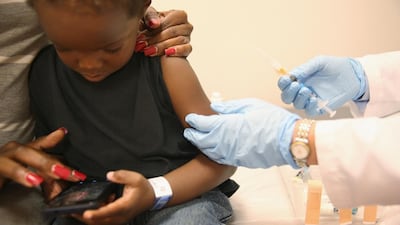The World Health Organisation has issued a warning over the “alarming spread” of measles in Europe following an almost 45-fold increase in cases across the continent.
The organisation warned cases have picked up in recent months, with member states reporting 42,200 measles cases last year, about 45 times the number in 2022, which stood at 941.
Two in five cases were in children aged one to four, while one in five were among people aged 20 and over.
The increase, which has been accompanied by about 21,000 hospital admissions and five deaths, threatens progress towards eliminating the disease, the health body said.
The WHO warned that the rising trend would continue if people do not vaccinate their children against the disease.
Last week, the UK launched its own campaigns to encourage parents to get the measles, mumps and rubella vaccine for their children.
Measles can lead to serious complications, lifelong disability and death.
It can affect the lungs and brain and cause pneumonia, meningitis, blindness and seizures.
Dr Hans Kluge, the WHO's regional director for Europe, said: “Vaccination is the only way to protect children from this potentially dangerous disease.
“Urgent vaccination efforts are needed to halt transmission and prevent further spread.
“It is vital that all countries are prepared to rapidly detect and timely respond to measles outbreaks, which could endanger progress towards measles elimination.”
The WHO said sliding vaccination rates were to blame, but noted that more people were now travelling abroad after Covid-19, increasing the risk of cross-border disease transmission and spread within communities.
The UK is on a “trajectory for everything getting much worse” when it comes to measles spreading, British officials said.
Prof Dame Jenny Harries said “concerted action” was needed to tackle the virus.
She suggested the majority of people were not against their child receiving the MMR jab, but that they needed more information to feel confident about their decision.
“What we are seeing at the moment with measles is that people have forgotten what a serious illness it is,” she said.
“We have had very high vaccination rates, especially for young families, but they are low at the moment.”
Muslim communities in the West Midlands are being advised there are alternatives available to the MMR pork derivative-based jab in an attempt to help raise vaccine rates.


